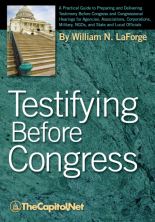10 Rules for Dealing with Police (Full-Length)
10 Rules for Dealing with Police – “10 Rules for Dealing with Police, the new film from Flex Your Rights, premiered at Cato earlier this week. If you’re interested in knowing more about how to defend your rights during encounters with law enforcement, this is a must-see. You can watch the whole thing [here], which includes discussion and commentary after the film.
(from the Washington Examiner).
1. Always remain calm, collected and respectful. “A police encounter is the worst time and place to vent your frustration with the police,” Murphy warned.
2. You have the right to remain silent. Exercise it. Not talking is the smartest way to exercise your Fifth Amendment right against self-incrimination. (This means “STFU”.)
3. You have the right to refuse any searches of your person or property without a court-ordered search warrant. Murphy told the audience to memorize these lines: “I don’t consent to searches.” (And then STFU.)
4. Don’t be fooled. The police are allowed to lie to you, make threats they know to be false, or promise things they have no intention of delivering. (See Number 2.)
5. Ask if you’re being detained or are free to go. The police need probable cause to detain you against your will. (And then STFU.)
6. Don’t do or say anything to help the police find probable cause so they can detain you. (See Numbers 1 and 2.)
7. Don’t run. That automatically gives them probable cause. (See Numbers 1 and 2.)
8. Never touch a cop. That’s a no-brainer. (See Numbers 1 and 2.)
9. Be a good witness so if you have to make a complaint about police misconduct, you will have a good recall of what took place. But don’t tell the officer. (See Numbers 1 and 2.)
10. Don’t let anybody from the government inside your house without a court-ordered, signed search warrant.
See also the Bill of Rights Card by Two Seas Media and our Pocket Constitution, and The Fifth Amendment.
And just in case the above didn’t make any sense…
How to Deal with Officers
At all times, remain calm and smile.
A police encounter is the worst time and place to vent your frustration about the police.
Do not make any sudden jerky movements, and do not run.
When stopped, ask each officer you deal with:
“Officer, am I being detained or am I free to go?”
If you are being detained, tell each officer you deal with
“I’m going to remain silent and I want to see a lawyer.”
Do not consent to searches:
“Officer, I do not consent to any searches.”
If searched without permission, do not physically resist:
“Officer, I am not resisting, and I do not consent to this search.”
Chris Rock’s educational video, “How To Not to Get Your Ass Kicked by the Police“
Chris Rock – How not to get your ass kicked by the police!
More
- See the videos accompanying the Fifth Amendment post
- Bill of Rights Card by Two Seas Media
- The Privilege To Shut Up – Popehat, January 14, 2014
- The Fifth Amendment – Why you don’t talk to the police without an attorney
- Helpful advice from a cop.
- FlexYourRights.com
- “They’re Not on Your Side,” by Nathaniel Burney, The Criminal Lawyer, November 17, 2010
- Enforcing the Law Is Inherently Violent, by Conor Friedersdorf, The Atlantic, June 27, 2016
https://hobnobblog.com/?p=1321
Courses
- Congressional Operations Briefing – Capitol Hill Workshop
- Drafting Federal Legislation and Amendments
- Writing for Government and Business: Critical Thinking and Writing
- Custom, On-Site Training
Publications

Legislative Drafter’s Deskbook: A Practical Guide

Pocket Constitution

Citizen’s Handbook to Influencing Elected Officials: A Guide for Citizen Lobbyists and Grassroots Advocates

Congressional Procedure
CongressionalGlossary.com, from TheCapitol.Net
For more than 40 years, TheCapitol.Net and its predecessor, Congressional Quarterly Executive Conferences, have been teaching professionals from government, military, business, and NGOs about the dynamics and operations of the legislative and executive branches and how to work with them.
Our custom on-site and online training, publications, and audio courses include congressional operations, legislative and budget process, communication and advocacy, media and public relations, testifying before Congress, research skills, legislative drafting, critical thinking and writing, and more.
TheCapitol.Net is on the GSA Schedule, MAS, for custom on-site and online training. GSA Contract GS02F0192X
TheCapitol.Net is now owned by the Sunwater Institute.
Teaching how Washington and Congress work ™


